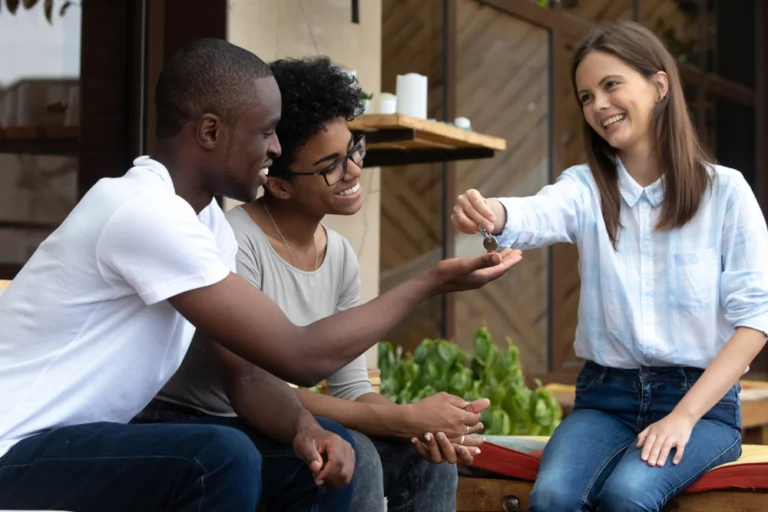The first rung on the property ladder can seem like a daunting step; especially if it’s one you have to take alone.
However challenging it may seem, many people buy a house or flat on their own, if you’re considering doing the same, help is at hand.
In this guide, we’ll run through the costs involved with buying a house as a single person and whether you can get a mortgage on your own. For advice tailored to your situation, get in touch with your local branch.
Is it possible for a single person to secure a mortgage?
It is absolutely possible to secure a mortgage as a single person.
Similar to any loan, a mortgage provider must evaluate the level of risk you present above all else. Unsurprisingly, buying a home by yourself has its advantages and disadvantages from a risk perspective.
One potential drawback is that you possess only half the purchasing power of a couple, which would mean that you’ll be offered less money. On the positive side, as a single person, you are likely purchasing a smaller house, which will be cheaper to buy.
Perhaps the biggest draw of buying alone, however, is that someone else’s adverse credit history won’t negatively impact your chances of being accepted for a mortgage.
As long as you possess a good credit score and can show that you’ll be able to afford your repayments, it’s likely you’ll be accepted.
Consider all the costs involved
It could be easy to find a house within your budget if you only consider the asking price, but it’s important to take into account additional costs such as solicitor fees, stamp duty, furniture and moving costs, and any other peripheral expenses.
It’s advisable to look for properties that allow some leeway in your overall budget, otherwise you might end up biting off more than you can chew.
More advice on getting your foot on the property ladder
Don’t forget stamp duty
Thanks to an exemption for first-time buyers, many assume that stamp duty will be waived for their first property purchase.
However, it should be noted that this only applies to homes below the maximum price of £300,000, so be careful when choosing your desired location, as this usually largely determines a property’s value.
Consider shared ownership
Shared ownership could be a great solution if you have saved up a smaller deposit but are eager to get moving. These schemes help first-time buyers to purchase a percentage of the property and to pay rent to a landlord – usually the local authority – on the rest.
Although you will only own part of the property, shared ownership means you can usually put down a smaller deposit for the home you wish to live in.
Some schemes offer the opportunity to buy out the remaining percentage later down the line, meaning you could eventually become the single owner of the property.
Buying with friends
Being single is a common reason for buying alone, but you don’t have to be in a relationship with someone to share a house. In fact, you may benefit hugely from buying with a trusted friend, especially if you both have half a substantial deposit saved up.
Shared equity
Some developers offer the option to buy one of their properties through schemes that boost the buying power of your deposit.
This essentially means you will be borrowing through the developer to help make up your deposit for a mortgage. You would then have to repay the developer while you pay off your mortgage, but the interest rate is typically low and is not repayable for the first few years of ownership.
This could be an attractive option for single buyers as saving up a deposit can take twice as long.
Research the property market
You should take some time out to thoroughly research the property market in your desired location.
Utilise online platforms, estate agents, and property listings to explore available properties within your budget. Attend property viewings, ask relevant questions, and consider enlisting the help of a trusted friend or family member for a second opinion.
This should help to streamline the process of house hunting, as it can take a lot of time to find a home within your budget if you don’t know where to look.
Making an offer
Once you have found your ideal property, make an offer that aligns with your budget. Be prepared for negotiations with the seller or their estate agent.
Stay firm but flexible, and consider seeking advice from your solicitor on how to proceed. Don’t be discouraged if your first offer is rejected; patience and persistence are key.
Are you a first-time buyer? Get in touch today to find out how we can help




